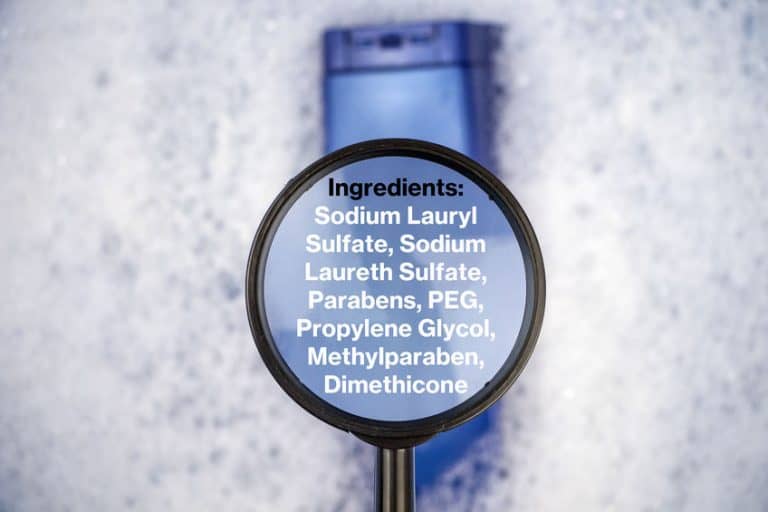Natural Skincare & Clean Beauty
The beauty and skincare industry has seen its fair share of trends over the years. While you may have been happy to see some of those trends go, others have been beneficial. ‘Clean beauty’ is one such trend. ‘Clean beauty’ refers to the fact that many consumers (as much as 50% of women according to a 2017 survey) preferentially seek out facial and skincare products that have all-natural or organic ingredients. These products tend to be free of chemicals such as parabens and sulfates which have long been staples within the beauty and skincare industry. You may recognize them as the products with a plant on the label or packaging in muted, earthy tones, with words such as “natural”, “non-toxic”, and “cruelty-free” on its labels.
This shift away from traditional beauty and skincare ingredients has had its benefits. Based on a study conducted by the Environmental Working group, on average, it is estimated that women can put on one hundred and sixty-eight (168) chemicals on their body via their daily skincare regimen. That is a lot of chemicals! What is even more alarming is that not all these chemicals are regulated by the Food and Drug Administration (FDA), so unfortunately you may not be aware of exactly what you are exposing yourself to. Is it safe or not? Is the benefit worth the potential risk for other problems? These are questions that we should all ask ourselves. We have listed below the reasons why natural skincare is best.
1. Better for your skin and better for your health
We know that the skin is the body’s first line of defence, and so it stands to reason that we would do all we can to preserve it and maintain it in optimal health. Why then would we expose it to harmful chemicals and toxins that can break down this protective barrier? What is even more concerning is that it has been shown that many of these chemicals and toxins can potentially be absorbed into the bloodstream where they can affect the nervous system, immune system, and reproductive system.
It is also noteworthy to mention that many of these products also have synthetic fragrances that (although they smell pleasant) are used to cover up chemicals. Most of these fragrances are also unregulated by the FDA and they may contain toxic chemicals. Many studies have reported that synthetic fragrances have the potential to cause “possible mutagenic and genotoxic effects.” Synthetic fragrances have also been found to contain hormone disruptors which have been linked abnormal cell reproduction.
By making the switch to using natural skincare products, you can put your mind at ease. These products tend to be void of many of the added chemicals that are unsafe. Natural products tend to be less irritating and once you choose the right products for your skin, you should be well on your way to natural, glowing skin. By removing those unnecessary chemicals, and using gentler products on your skin, you can avoid those pesky breakouts.

2. Better for the environment
Natural skincare is not only better for your body, but it is also better for the environment. When you use commercial beauty products and the chemicals are washed down the drain, they can be harmful to the local waterways. Ingredients within these products may also require mining which negatively affects that environment in so many ways.
Along with health concerns over the long list of hard-to-pronounce chemicals that are often found in conventional beauty and skincare products, there is also the fact that these often create a large carbon footprint. Ingredients commonly found in conventional beauty products such as petroleum and silicone are not only bad for our health but very harmful for the environment. The way in which traditional ingredients are extracted or manufactured often significantly impacts the environment, even if they occur naturally. For example, palm oil is a naturally occurring substance but for it to be harvested land must be stripped, leaving destruction in its wake. Most of the world’s palm oil is produced unsustainably with ancient native forests being replaced with palm plantations at frightening rates. This is leading to unprecedented levels of deforestation, fires, and habitat loss, which is threatening the survival of species such as the orangutan, Sumatran tiger, and the Sumatran rhino. The Roundtable for Sustainable Palm Oil (RSPO) has been working towards controlling the damaging aspects of palm oil production, but there still is much work to be done to close loopholes and ensure palm oil is in fact truly sustainable.
The packaging of products is also very problematic as plastics from packaging contribute to overflowing landfills and pollution of our oceans. Many natural brands try to find sustainable alternatives to packaging such as reusable glass containers or recycled materials.
3. Free from harmful chemicals
Many often find that by switching to natural skincare they find better products. Natural skincare companies invest time and money into ensuring that their products are safe for all skin types and do not have any deleterious side effects on you or your body. Unlike conventional products, there are no parabens, sulfates, phthalates, glycols, silicones, or phenoxyethanol.
But what is so bad about these chemicals? Let’s talk now about the common chemicals found in skincare products and why you should avoid them.
Chemicals you should avoid in your skincare products and why:

Parabens
Parabens are a group of chemicals widely used as artificial preservatives in cosmetic and body care products since the 1920s. Scientific studies suggest that parabens can penetrate the skin barrier, enter our bodies, and cause disruption of our endocrine system. This can interfere with our hormonal production by mimicking estrogen, potentially leading to reproductive and developmental issues. It has also been suggested in studies that parabens could play a role in the development of human breast, ovary, and testicular cancer. For these reasons, many countries have banned the use of some parabens in personal care products. Parabens can also cause skin irritation and there is research to suggest that there is a correlation between parabens in SPF products and damaged coral reefs.
Given the damage that can be caused to the endocrine system, reproductive system, and the environment, long-chain parabens (methyl-, isobutyl-, butyl-, isopropyl- and propylparaben) should not be used in personal care or cosmetic products.
Phthalates
Phthalates are chemicals that are used in a variety of household items, including personal-care products. One called diethylphthalate (DEP) is commonly used in fragrance ingredients. Like parabens, scientific studies have also shown that phthalates can be harmful to our bodies. A 2020 scientific review on the long-term consequences of phthalate exposure concluded that, based on several in vitro and in vivo studies, phthalates can act as endocrine disruptors and cause moderate reproductive and developmental toxicities. Furthermore, phthalates can pass through the placental barrier and affect the developing foetus. The potential adverse health effects in humans make it a ‘no-brainer’ to avoid these chemicals wherever possible. Phthalates usually appear on a label as DHEP or DiBP.
Sulphates
Sulfates are skin irritants that can strip skin of its natural oils causing dryness and irritation. Since it can penetrate the skin’s barrier, the continued use of sulfates such as sodium lauryl sulfate (SLS), and sodium laureth sulfate (SLES), can cause a reaction that makes the skin more susceptible to the absorption of other irritants. Sulfates are mainly derived from petroleum but can be derived from plants, such as coconut or palm oil. Petroleum products are controversial due to their association with climate change, pollution, and greenhouse gases. Palm oil is controversial due to habitat destruction, amongst many other things.
A natural skincare alternative to sulfates includes gentle foaming agents like sugar or coconut. The best way to safeguard against the use of sulphates is to carefully read the ingredient list on product labels.
Glycols
Propylene glycol is derived from petroleum. It is a humectant, which means that it increases moisture retention in skin and hair. Typically, it is well tolerated by the skin and does not cause any redness or irritation, however, the problem with propylene glycol lies within the fact that it is a penetration-enhancing humectant. This means that it could possibly allow harmful toxins to be absorbed by the skin, where under normal circumstances this would not happen. This can include skin toxins such as pollutants and harsh chemicals that can cause irritation or allergic reaction.
Silicones
Silicones are commonly found in skin and beauty products where they confer a silky, luxurious texture. They can make skin appear and feel visibly smoother even though the effect is oftentimes temporary. Silicones are also water-resistant and so they can create a seal over skin that provides “hydration” benefits. However, silicones are not always beneficial to the skin. Since silicone is known to ‘seal things in’, this means that it can also trap dirt, sweat, bacteria, and dead cells. When these are trapped for long periods of time, it can cause breakouts on the skin, especially for people who are prone to acne. Its semi-occlusive properties can also prevent additional moisture from being absorbed by your skin, leaving it looking dull and dry. The truth is that silicones offer virtually no benefit to your skin and any benefit they do offer is very short-lived and they often leave behind a heavy coating. From an environmental perspective, most silicones are not biodegradable. They wash down into our drains and into the environment, where they accumulate and can cause toxicity to wildlife.
As consumers trying to use high-quality ingredients that are better for our skin and the environment, the solution is to go natural with things like aloe vera, shea butter, and jojoba oil.
Phenoxyethanol
Phenoxyethanol is a preservative that is commonly used in many cosmetics and personal care products. It is an ether alcohol that is colorless and has a rose-like aroma and it is present in so many daily use products that you are likely to have a cupboard full of it at home. Phenoxyethanol is a popular ingredient as it inhibits microbial growth, stabilizes products, and enhances shelf-life. It can be listed on a label under several names, including 2-phenoxyethanol, phenoxytol, ethylene glycol monophenyl ether, and 1-hydroxy-2-phenoxyethane. According to the European Scientific Committee on Consumer Safety, phenoxyethanol is safe for all consumers when used as a preservative in cosmetic products at a maximum concentration of 1%. Adverse systemic effects have been observed in toxicological studies on animals and plants but supposedly only when the levels of exposure were much higher than those to which consumers are exposed when using phenoxyethanol-containing cosmetic products. Interestingly, phenoxyethanol is classified as an irritant to the skin, eyes, and lungs, and as a result Japan and the EU have restricted its use. The question we all need to ask ourselves is “What happens when many other phenoxyethanol containing products are applied to our skin daily?”. Products such as: liquid hand soap, body wash, cleanser, toner, serum, moisturizer, sunscreen, foundation, make-up, deodorant, shampoo, conditioner, hair products, aftershave, dishwashing liquid, clothes washing liquid, bench spray, the list goes on. Phenoxyethanol is rapidly absorbed into the body once it makes skin contact. Although the single product you are using may only have 1% concentration of phenoxyethanol, what happens when you use many other products containing phenoxyethanol during the day, as we all do? That is a lot of phenoxyethanol being absorbed into your body, and/or being washed down the drain into the waterways.
Preservation of skincare and personal care products is crucial to prevent the growth of bacteria, fungus, and microbes, however there are effective, approved, natural alternatives to phenoxyethanol which many natural skincare companies are now using.
There are other chemicals commonly found in beauty and skincare products that have also been found to be harmful. For example, aluminum is a toxic metal commonly found in products that can mimic estrogen and disrupt the healthy functioning of the endocrine system. Many products also contain synthetic fragrances, that are derived from petrochemicals, and contain thousands of different ingredients that are not listed on the label. Consequently, there is no way of knowing what you are being exposed to.
What can you do?
Most people are exposed worldwide to a variety of potentially harmful substances every single day. Although the amounts may be small, and the effects sometimes poorly understood, continuous exposure to a mix of these chemicals over long periods could have consequences for the health and well-being of people and society.
With the new wave of natural beauty companies pledging to abstain from using these chemicals, avoiding harmful chemicals, such as parabens, phthalates, and sulfates, has become easier.

As a consumer the single most important thing you can do for yourself is read and understand cosmetic labels! Become familiar with the chemicals in skincare products and decide what is important to you. Are you happy to be putting that paraben-containing product on your skin knowing that it could cause you adverse health problems down the track? Are you happy to buy that product that uses palm oil knowing that widespread devastation has occurred to make it? Are you happy to buy products packaged in plastic knowing the disastrous consequences of plastic pollution to our planet? Empower yourself and become an informed, conscious consumer. Buy natural products that list their ingredients on their labels and website. Choose products that are free from the chemicals listed above. Support companies that do not package their products in plastic. Buy products from companies that care about the things you care about and don’t just ‘talk the talk’.
Natural Skincare is best!
In conclusion, ‘clean beauty’ brands have been investing in our health and the wellbeing of our planet. It is important to support brands that not only use natural ingredients but that also align with your beliefs whether it is natural, vegan, organic, or cruelty-free. Guilt-free skincare is in! Skip the cocktail of chemicals – and embrace natural skincare! Your skin, your health, and the environment will certainly be glad you did!





